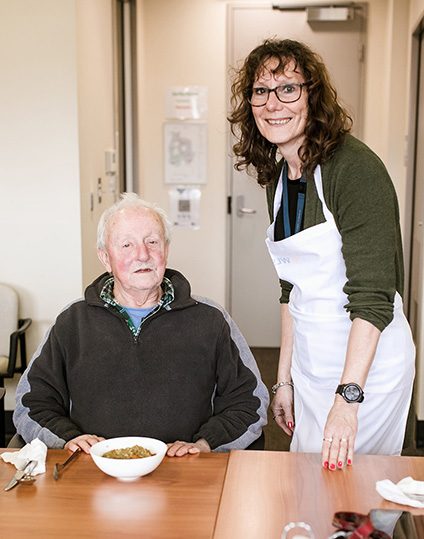Our continence nurse advisor has answered some FAQs about constipation in children. If you want to know the warning signs and what to do about them, read on.
Every child’s pooping pattern is different.
Some children will poo twice a day, and others will go only every other day. Ideally, children should have a bowel movement once a day.
A child may be constipated if they poo less than four times a week. (If a child has been constipated before, they should definitely aim to poo once a day to prevent constipation from happening again).
Pooing more than three times a day isn’t right either. If your child’s stools are watery, they might have diarrhea, but this could also be ‘overflow poo’ caused by constipation.
TOP TIP: Keep a close eye on how often your child is pooing, and what the poo looks like. This will help alert you to the early warning signs of constipation or diarrhea, and if your child needs treatment.
Constipation can start at any age, and lots of kids experience it. Even babies can get constipated, including those who are breastfed.
But you should never wait for constipation to get better by itself – the longer it’s left untreated, the longer it’ll take to get better.
Constipation doesn’t go away or get better on its own as kids grow up. Children who have been constipated are likely to get blocked up again in the future and may still need the help of laxatives as adults.
TOP TIP: Children are more likely to accept their treatment if they understand why they need it. Try reading a book on poo. Reward your child for having their ‘poo medicine’ or drinking more water each day. They’ll soon understand the health advice, and they will want to follow it.
Is your child refusing to eat veggies? Are they going through a phase of eating only one colour of food? Try to increase the amount of fibre in their diet.
Diet and not drinking enough water can lead to constipation in children. So, if your kid isn’t eating enough veggies or they are dehydrated, this may be the cause of their constipation.
Just be mindful that constipation isn’t always linked to diet.
It can be a result of a child passing a painful poo and then withholding their stools through fear of a repeat experience.
An underlying physical reason and some medications can also cause constipation.
In some cases, children can become constipated without any known cause. This is known as ‘idiopathic constipation’.
We often know constipation as an inability to pass stools, no matter how much we need to go. However, there are many other signs of constipation that, if left unaddressed, can cause kids a lot of discomfort and distress.
Here are some common, lesser-known signs of constipation in kids:
My child often has small, dry bits of poo in their pants
It sounds like your child is constipated and the dry bits of poo in their pants are ‘overflow’ poo that have broken away from a blockage of hard poo in the rectum (called an impaction).
The longer the impacted poo stays stuck in the bowel, the harder it gets to push out. The brain eventually stops getting messages telling your child they need to do a poo. They can’t feel the poo breaking away into their pants and don’t have any control over this happening.
If you notice this happening, take your child to a doctor so they can assess them for constipation. They’ll likely prescribe laxatives to clear the blockage and prevent further soiling.
My child is doing lots of soft and runny poos
Soiling is fresh, runny overflow poo that leaks around a hard poop blockage (called an impaction) in the rectum. Soiling is often mistaken for diarrhea.
Take your child to the doctor or continence nurse advisor as soon as possible. They will assess them for constipation and, if necessary, prescribe medicine to clear out the poo blockage.
My child still wets the bed at night
There are many reasons why children wet the bed. Stress, anxiety, deep sleeping, and excitement are all common causes.
Constipation can also affect the bladder. When the bowel gets overloaded with poo, it stretches and pushes against the bladder. This pushing distorts the bladder and makes it difficult to empty properly.
Leftover wee in the bladder can cause urinary tract infections (UTIs). The squashing of the bladder also reduces the storage space for urine, and can cause the sensation of needing to wee frequently and urgently. This can lead to daytime and nighttime wetting problems.
If this is happening to your child, see a doctor or continence nurse who can rule out or treat constipation.
If you notice anything strange or concerning about your child’s bowel habits, it’s important to get it checked out. Left untreated, constipation can become chronic, meaning your child may have toileting problems even as an adult.
It’s time to see a continence nurse advisor if your child is:
- Six years and older, and wets the bed.
- Four years and older, and wets their pants during the day.
- Experiencing constipation, soiling, or loose bowels at any age.
The continence nurse advisor at Latrobe Community Health Service can treat toileting problems in kids aged 2-18. Our continence nurse advisor can assess your child, help you manage their condition, provide education, and arrange referrals to specialists if necessary.
We deliver this service for Gippsland residents at our clinic in Morwell. Phone us today on 1800 242 696 for more information.




